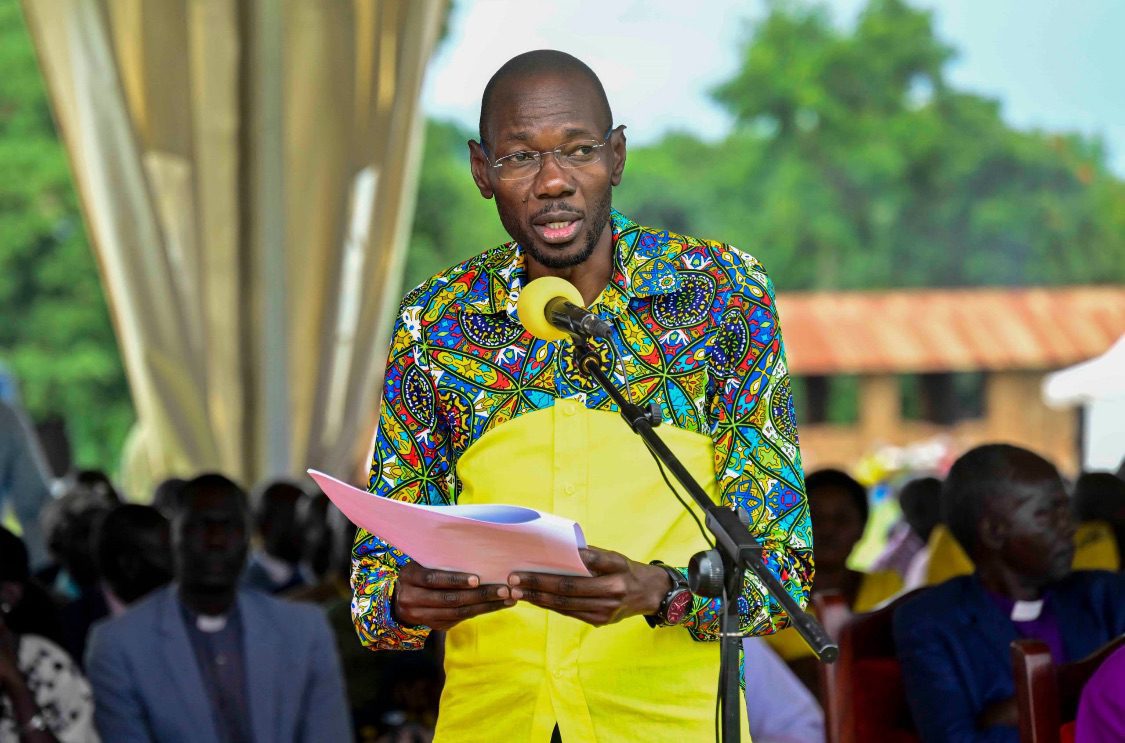
As Uganda’s government moves forward with reviving the long-dormant Kilembe Mines in the copper-rich Rwenzori region, the recent handover of assets to a little-known entity—Sarrai Group—has sparked an outcry among residents and stakeholders. Many in Kasese fear that history is repeating itself, recalling the group’s controversial dealings in Kenya and questioning its capacity to run a national mineral asset like Kilembe Mines.
This week, the State Minister for Energy and Mineral Development, Hon. Phiona Nyamutoro, officiated the handover ceremony for Kilembe Mines’ assets to three entities: Uganda National Mining Company, Sarrai Group, and Nile Fireboard Limited. Minister Nyamutoro said a field inspection to verify the assets would follow.
However, residents remain skeptical, especially about Sarrai Group, whose track record and background have raised red flags.

Who Is Sarrai Group?
Despite claims that the Sarrai Group has been headquartered in Kampala since 2001, many Ugandans say this is their first time hearing of the company. Its sudden prominence in the takeover of a nationally strategic asset has fueled suspicions of a behind-the-scenes deal favoring a “briefcase company”—a colloquial term for entities with no clear history, credibility, or physical operations.
Concerns are heightened by Sarrai Group’s notorious involvement in the leasing of Kenya’s Mumias Sugar Company in 2021. The lease process, initially hailed by some as a lifeline to the struggling sugar miller, quickly unraveled into a web of court battles, accusations of fraud, illegalities, and controversy.
A Troubled Past in Kenya
In December 2021, Sarrai Group was controversially awarded the lease to operate Mumias Sugar Company in Kenya. Their bid of Kshs. 11.5 billion paled in comparison to Tumaz and Tumaz Enterprises, which had offered Kshs. 27.6 billion. This triggered a series of lawsuits, and on December 29, 2021, the High Court of Kenya suspended the lease citing fraud and irregularities in the process. Justice Kenneth Ndung’u ordered all parties to halt any operations until the case was heard and determined.
Additional lawsuits soon followed, including challenges from West Kenya Sugar Company and even Mumias Sugar farmers. It became clear that the lease had been issued without proper consultation with creditors or regulatory approval from the Competition Authority of Kenya (CAK). In early 2022, evictions of over 500 former Mumias Sugar employees from company housing by Sarrai Group ignited further outrage, as these actions were allegedly carried out in defiance of standing court orders.
The final blow came in April 2022 when Justice Mabeya canceled the lease altogether, citing a failure to consult key stakeholders, lack of transparency, and procedural failures. The court appointed a new administrator and ordered a restart of the entire lease process.
A Pattern of Questionable Practices
Sarrai Group has also been linked to violent evictions in Uganda. Reports surfaced of the company forcibly removing more than 5,000 people from ancestral lands in a case that spurred a national Commission of Inquiry. These actions contradict the values of responsible investment, especially when dealing with community-centered resources like Kilembe Mines.
Given this checkered past, many Kasese residents, and civil society organizations are now voicing concern. They argue that entrusting a company with such a track record to manage Uganda’s most valuable copper reserve is not only risky but disrespectful to the community that has waited for decades to see the mines revived for employment and local development.
A Community Betrayed Again?
The revival of Kilembe Mines has been a long-cherished dream in Kasese. Once a thriving economic hub employing thousands, the mines were closed in the 1980s due to political instability and mismanagement. Hopes were rekindled when the government announced plans to secure credible investors for the mines.
However, the recent history of failed investments—including the terminated contract with Tibet Hima— has left many disappointed.
In October 2024, Minister of State for Investment Evelyn Anite appeared before Parliament’s Committee on Natural Resources and confirmed that the contract with Tibet Hima had been terminated. The Chinese investor, she noted, had demanded to export 30,000 metric tons of copper, cobalt, and gold as samples—an unreasonable request. Minister Anite took responsibility for the decision and said Uganda could not afford to hand its valuable natural resources to companies lacking capacity and transparency.
The parallels between Tibet Hima and Sarrai Group are hard to ignore. Both companies raised doubts over their capacity and intentions. Both made bold promises without showing the local presence or operational history to back them up. And in both cases, the people of Kasese are left questioning whether they will ever see the long-promised jobs and development.
Calls for Transparency and Accountability
Civic groups are now demanding that the government revisit the handover to Sarrai Group. They are urging Parliament and relevant watchdog agencies to conduct thorough due diligence on the company’s financial capacity, technical expertise, and governance record.
“What we are witnessing is a textbook case of poor investor vetting,” said one local Activist. “ We need serious partners—not shadowy companies that appear out of nowhere and walk away after plundering our resources.”
Youth in Kasese, already facing high unemployment, feel particularly betrayed. Many had hoped that the reopening of Kilembe Mines would offer them decent work opportunities. “Instead, we are watching another shady deal unfold. We want jobs, not empty promises,” said Masereka , a youth activist and unemployed Ugandan.
The Way Forward
There is still time to course-correct. Civil society, media, and Parliament must push for independent investigations into the Sarrai Group’s suitability to manage such a high-stakes venture. Uganda cannot afford to gamble with a resource as valuable as copper, especially in a global economy shifting toward clean energy technologies dependent on such minerals.
A new chapter for Kilembe Mines must begin on a foundation of transparency , community involvement, and long-term economic planning. Anything less will not only fail the people of Kasese but also undermine Uganda’s credibility in managing strategic natural resources.
As the verification of assets and operational plans begins, the eyes of the entire country are on Kilembe.
For the sake of the region and the nation, let’s hope this time the people are not left behind.
The Writer is a concerned citizen
Kameli Zephaniia Bwambale
kamelizepha1990@gmail.com






 ">
">
